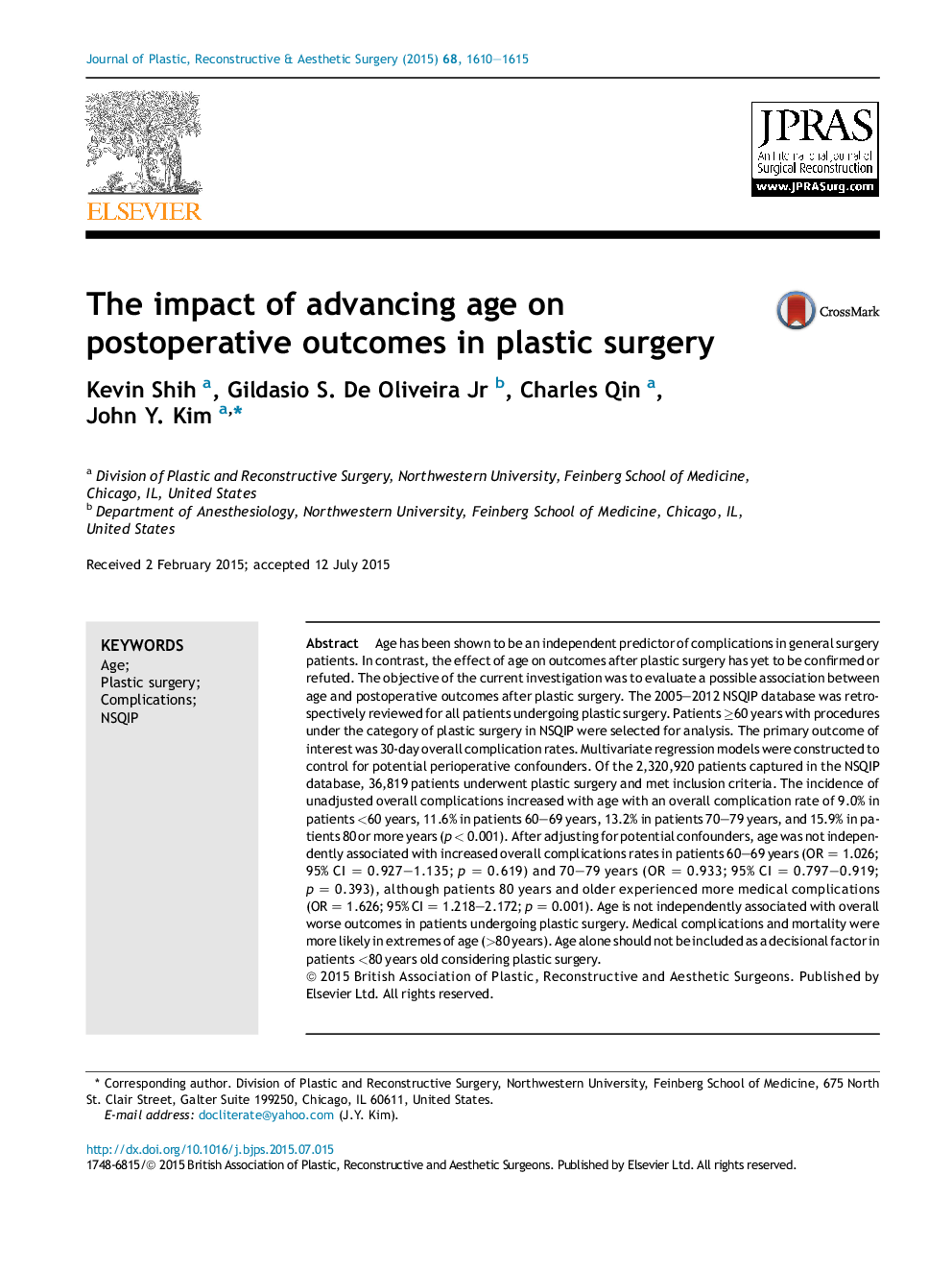| Article ID | Journal | Published Year | Pages | File Type |
|---|---|---|---|---|
| 4117063 | Journal of Plastic, Reconstructive & Aesthetic Surgery | 2015 | 6 Pages |
Age has been shown to be an independent predictor of complications in general surgery patients. In contrast, the effect of age on outcomes after plastic surgery has yet to be confirmed or refuted. The objective of the current investigation was to evaluate a possible association between age and postoperative outcomes after plastic surgery. The 2005–2012 NSQIP database was retrospectively reviewed for all patients undergoing plastic surgery. Patients ≥60 years with procedures under the category of plastic surgery in NSQIP were selected for analysis. The primary outcome of interest was 30-day overall complication rates. Multivariate regression models were constructed to control for potential perioperative confounders. Of the 2,320,920 patients captured in the NSQIP database, 36,819 patients underwent plastic surgery and met inclusion criteria. The incidence of unadjusted overall complications increased with age with an overall complication rate of 9.0% in patients <60 years, 11.6% in patients 60–69 years, 13.2% in patients 70–79 years, and 15.9% in patients 80 or more years (p < 0.001). After adjusting for potential confounders, age was not independently associated with increased overall complications rates in patients 60–69 years (OR = 1.026; 95% CI = 0.927–1.135; p = 0.619) and 70–79 years (OR = 0.933; 95% CI = 0.797–0.919; p = 0.393), although patients 80 years and older experienced more medical complications (OR = 1.626; 95% CI = 1.218–2.172; p = 0.001). Age is not independently associated with overall worse outcomes in patients undergoing plastic surgery. Medical complications and mortality were more likely in extremes of age (>80 years). Age alone should not be included as a decisional factor in patients <80 years old considering plastic surgery.
